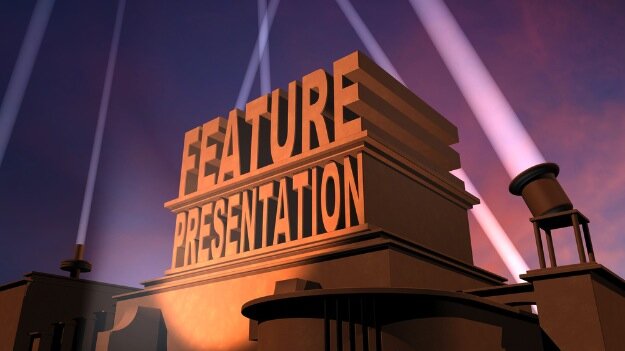This week, I finished yet another edit pass on Machination, our pandemic inspired horror / drama that follows the plight of a character named Maria suffering from mental illness in the face of a world pushing fear. It is running at 62 minutes, minus opening and closing credits.
When the first cut clocked in at only 60 minutes, we went back to the drawing board and wrote new scenes to be filmed. We called back the lead actor Steffi Thake and even recruited new actors to play additional characters, young versions of Maria and her brother Yorgen, which we meet in dreams and flashbacks in the story.
We had this idea in our head that we wanted the film to run for at least 70 minutes. For some reason, 70 minutes felt like a feature to us whereas anything under wasn’t quite there. But why did I feel this way? Wasn’t 70 minutes still on the short side? What is the length a film needs to run to quality as a feature film?
Well, the answer varies according to country and institution. The Academy of Motion Picture Arts and Sciences and the British Film Institute define a feature film as anything more than 40 minutes. The Screen Actors Guild on the other hand insists that a feature's running time must be 75 minutes or longer. While the French, being French, measure a feature film using actual 35mm film, defining a feature as longer than 1,600 metres, which is exactly 58 minutes and 29 seconds.
So clearly, a feature film is shorter than many would think, according to most official definitions. But most people I spoke to about this, including other filmmakers, say 90 minutes or a little above is the length to aim for when making a feature. This is the Hollywood standard, or at least it was for a long time. This is what we grew up on, and I distinctly remember watching Sunday night movies in Australia as a teen, 8:30pm to anywhere between 10:30 to 11pm, always butchered by a healthy dose of commercials. Beverly Hills Cop, Home Alone, True Lies, or a Sunday movie television premiere. So it is no surprise that we are influenced by what we experienced in the past and that 90 minutes is still considered the ‘legitimate’ length for a feature film.
But two of our earlier films, Dace Decklan: Private Eye and Friends, Foes and Fireworks ran at 72 and 76 minutes respectively, and there were never any complaints about length from distributors or viewers.
Working on the edit for Machination
Yet now, facing the edit of Machination running under 70 minutes, doubts about runtime popped into my head. Did we have a legitimate feature film? Even another director I am working with currently shared the same concerns about his film. He was worried it would come in under 70 minutes. It was almost like 70 had become the new 90, at least in the micro-budget space. And I continued to wonder why?
My hypothesis is because we always have doubts about our own work. As micro-budget filmmakers, competing with pennies in an industry known for spending millions, we have an uphill battle for validation. I’ve worked in production houses who scoff at what I do. I’ve had press outlets dismiss us because our budget isn’t significant. I’ve even had other ‘filmmakers’ (I use quotation marks because these are often filmmakers who know all the theory about filmmaking but never actually make anything) tell me our work has no merit because you can’t make anything with merit on a micro-budget. Unfortunately, every industry comes with preconceptions, and in film it is not different. So when you say here is my latest feature, it is 62 minutes long, you expect questions. And you naturally question yourself.
But I do my best to remember a basic principle of video editing: include only what the story needs.
So I am not going to pad Machination to fit some arbitrary runtime. I am not going to sacrifice pacing, timing, story telling, and include superfluous shots to make the film longer than it should be.
That is not to say we regret filming those extra dream sequences. Rather than simply adding length, those scenes feel like they have added an extra dimension to the film and fleshed out the character of Maria and how she relates to the world, where previously things felt repetitive in the dream sequences. So we are happy we went back and added scenes. But we also tightened the edit we previously had and deleted shots and sections because it felt right and helped with the flow of the story.
Ultimately, despite questions, despite doubts, the story is what matters in the end. Every scene that is in the finished film, every shot, needs to be there to serve the purpose of the story and nothing else.
So as I approach another round of editing on Machination and creep closer and closer to picture lock, I am learning to accept this. Machination will be our shortest feature film yet. But, hopefully, if we have done our job correctly the runtime won’t matter. All that counts is the story.
Written by Ivan Malekin


